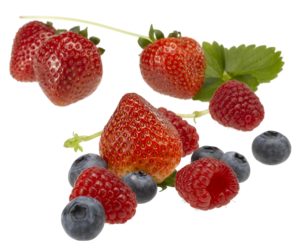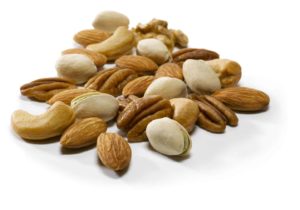
As many of you may know, I’m a big fan of a Mediterranean-style diet. It’s arguably the most famous of all the whole-food, plant-based diets, and for good reason. For over four decades, a growing body of research has confirmed its benefits for heart health, blood sugar balance, cognitive function and beyond. Now, emerging research suggests that this style of eating could be even better for brain health, depending on the foods you eat.
A primer on a Mediterranean-style diet
A quick primer on a Mediterranean diet may be helpful before we take a deeper dive into how to make it better for brain health. Colorful fruits and vegetables, whole grains, olives, nuts and seeds are menu staples. Yogurt, cheese and other fermented dairy products round out the diet. And, of course, olive oil is the go-to source of healthy fat. Protein foods lean toward fish, white meat, eggs and beans. Red meat and processed meats are consumed less frequently and in smaller portions. The preferred beverage tends to be water, but drinking a glass of wine (or other fermented alcoholic beverage) with a meal is not uncommon. Importantly, added sugar and sugar-laden foods—candy, sweets, desserts, sodas—are limited.
It’s easy to spot the Mediterranean influence in our meals. After all, Francesca is Italian and an incredible cook. She’s also adamant about choosing ingredients that are fresh, local and organic whenever possible. To me, this makes her a culinary triple threat who can transform simple ingredients into savory dishes that are both delicious and health-promoting. (Her marinara sauce alone could rival that from any award-winning chef.) In fact, healthy eating—Mediterranean-style—is one of her four pillars of healthy living that she shared in a previous post.
The DASH diet is another whole-food, plant-based diet that’s similar to a Mediterranean-style diet. The acronym DASH stands for “Dietary Approaches to Stop Hypertension,” and as its name implies, it’s designed to help manage blood pressure. The big difference is the DASH diet also puts a cap on the daily sodium intake (no more than 2,300 mg). For many people, consuming too much sodium tends to increase blood pressure, which can increase the risk for stroke, heart attack and other coronary events.
MIND diet: A better Mediterranean-style diet for brain health
Here’s where things get interesting. Since both a Mediterranean-style and DASH diets have been shown to prevent cognitive decline on their own, and even support better cognitive performance, it’s worth asking: Could combining the best of both deliver even more brain benefits? The answer appears to be a qualified yes.
Enter the MIND diet.
MIND stands for “Mediterranean-DASH Intervention for Neurodegenerative Delay.” It’s a clunky name for a hybrid of the Mediterranean-style and DASH diets. Although, unlike the DASH diet, the MIND diet doesn’t limit sodium, but it does limit fried foods and fast foods to no more than one serving per week.
In one intriguing study by Harvard researchers and colleagues, the MIND diet was associated with substantially slower cognitive decline in elderly adults. For this study, the researchers followed over 900 community-dwelling adults, mostly in their 70s and 80s, for up to 10 years. They found that, compared to those with the poorest adherence to the MIND diet, those with the best adherence had a cognitive function equivalent to being over 7 years younger. The study wasn’t designed to show cause-and-effect, only a correlation. Still, you can’t help but be intrigued by a finding like that.
The cognitive advantage of the MIND diet
What makes the MIND diet so special for cognitive function? More research is needed to fully understand what’s behind its potential neuroprotective effects, but for now, I have a hunch. The answer may lie, in part, in the more nuanced recommendations for vegetables, fruits and nuts.
Consider the following three factors:

First, all three diet plans (Mediterranean, DASH and MIND) emphasize eating plenty of vegetables, but only the MIND diet specifically recommends eating at least six serving per week of green, leafy vegetables. It’s interesting to note that kale, spinach, collard greens and other green leafy veggies are rich sources of a wide range of neuroprotective nutrients such as beta-carotene, folate, vitamin E, vitamin K and lutein, among others.

Second, while all the diet plans recommend eating fruits regularly, only the MIND diet emphasizes eating two servings of berries each week. The brain benefits of berry polyphenols, especially anthocyanins, are well known.
Finally, all the diets include nuts, but only the MIND diet emphasizes eating nuts often (at least five servings a week). Nuts are a rich source of vitamin E, unsaturated fat, polyphenols and other neuroprotective nutrients.

In other words, the MIND diet may be so good for cognitive health because it adds more green, leafy veggies, berries and nuts to the diet that, in turn, provide key nutrients that support cognitive health.
Plus, putting this into practice is not that difficult. In our home, dinner isn’t complete without a mixed green salad tossed in a homemade vinaigrette. I toss a handful of berries into my morning protein shake, and my go-to snack is typically some type of nut, usually walnuts. And, knowing these nutritious habits may also help me stay mentally sharp is a great incentive to keep it up.
Of course, a healthy diet is much more than nutrition. As Francesca says, eating should be about feeling good and celebrating life with meals that are both delicious and health-promoting with a little room for the occasional sweet treat (even the MIND diet allows a few servings a week of pastries and other sweets!).
So, whatever type of whole-food, plant-based diet you choose, know that it could go a long way to helping you keep your body—and brain—in tip top shape, but only if you take action.
I can’t think of a better time to start than now.
Cheers!

